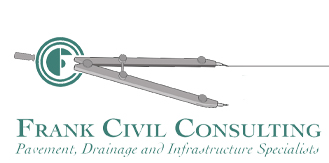“Apples, Oranges, Pears, and Pineapples!”
I LOVE fruit! Lots of vitamins taste great, refreshing! What’s not to like? There is a great similarity to all fruit and our industry. No, I am not talking about the potential “fruitcake” people you may or may not be dealing with on a “day-to-day” basis! I am talking more specifically about the way your Communities many times receive their proposals. Specifically, in our industry, Civil (Paving, Drainage, Site Concrete, and Utilities), “seal coat” is an overused general term! How many times have you heard, “Betty, can you please obtain us 3 “seal coat” bids for our roads? With apologies to any “Betty’s” out there reading this article right now, Betty promptly goes out to her vending Community and asks for each vendor to provide a proposal for a “seal coat”. Each vendor then does exactly what was requested, visits the site, develops a proposal and submits it to the Community. At the next Board meeting, Betty proudly submits the proposals for the “same” scope of work, “seal coating”.

This is where a “request for proposal” (RFP) becomes so important! In order to eliminate the wide variety of “fruit” you will receive in any bid solicitation process, you need to eliminate any “open ends” or “room for interpretation” that each vendor may have questions regarding or make assumptions on. In addition, by leaving it to the vendor to decide what is best may not be actually what is best or even needed. There are lots of great vendors in the industry; however, there are also vendors that are happy to sell you goods or services whether you need them or not. Another common mistake I see in my professional career is when a Manager asks their “preferred vendor” to “play consultant”, visit the property, make an assessment of what they would do, provide a proposal which in turn the name is removed and used as “bid specifications”. It would be my guess that most vendors do not want that kind of responsibility or liability associated with providing specifications that another vendor can rely on. This type of “solicitation” is not uncommon in all types of maintenance work (paint, landscape enhancements, seal coat, and more). The risk here is whether what one company feels is the right approach is actually the right approach AND what expectations your client has when the work is completed. I have had many occasions where a client has asked me to inspect a property as they feel that the work was not completed correctly. When I ask the client to see the “RFP” and bid specifications, they either don’t have any OR they have used a “preferred” vendor’s proposal. Many times, these don’t have application rates or surface preparation requirements, tolerance levels or other specifics leaving an “open door” for bids to vary. Ultimately, too often, I am left to let the client know “you got what you paid for”.
As a Consultant, to keep all work on a level and ethical playing field, we provide a detailed bid package that includes the date and time bids are due, General Conditions, and Technical Specifications in all of our “RFP’s”. We also include a “bid form” for the prospective bidder to fill out versus accepting their bid form that may or may not have stipulations, exclusions, and provisions. The bid form allows us the ability to properly “vet” all proposals to insure thoroughness of scope. An “RFP” is not only a benefit to the client, it is a benefit to the contractor and they realize that all parties are playing on a “level playing field”. It would be my opinion that if you asked the vending Community, I am sure most would agree that by having this information, they don’t have to worry about losing out on a property as a result of another vendor proposing on something less than appropriate providing an unfair advantage to that vendor.
Bottom line, the “RFP” gets you, the client, “uniform fruit” (apples vs. apples), rather than the “fruit salad” that provides confusion and frustration when making an important decision on any Community’s expenditure.







